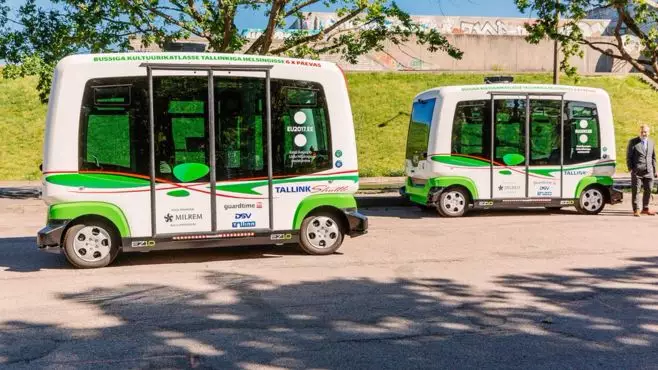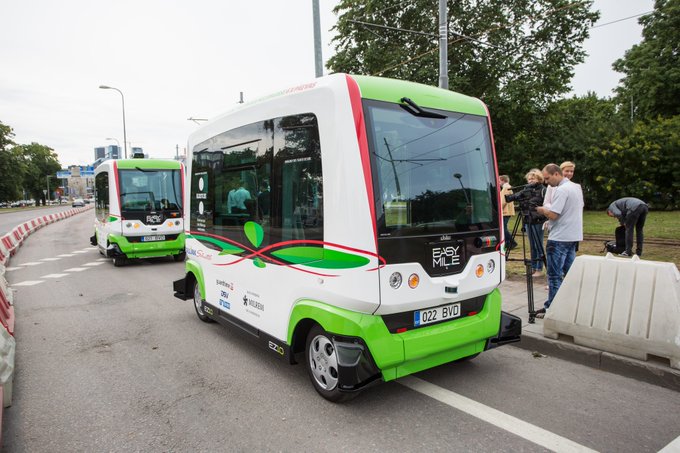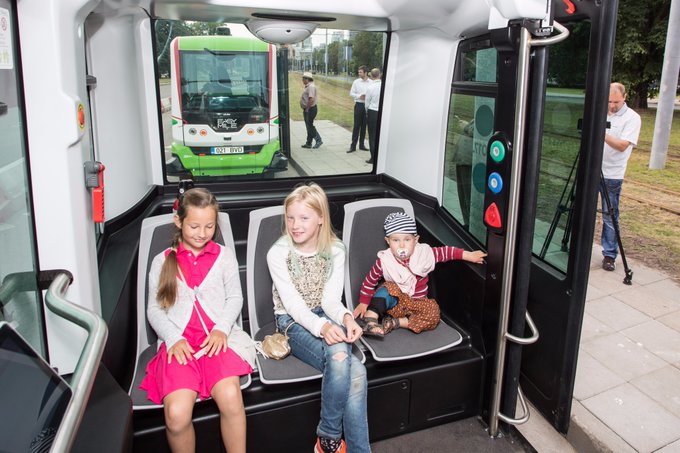
Driverless buses in Estonia have proved a success, if early results are anything to go by. Authorities in the capital city of Tallinn have reported "no major incidents" in the first three days of operation.
The trial of driverless buses was rolled out as part of the celebrations to mark the Baltic nation's term as European Union President and thus far, no collisions with other road users have been reported, according to Estonian national broadcaster ERR.
While there have been no crashes, the journeys have not been completely trouble-free. Eyewitness accounts say that one of the driverless vehicles narrowly avoided hitting a police car on Monday after failing to give way, while another was seen to fail to stop at a pedestrian crossing, despite flashing red lights.
Advert
Local laws require a 'responsible person' to be on board at all times, even if the vehicle itself does not have a driver. All passengers are thus greeted by a member of staff, who explains the new technology and the idea behind so-called autonomous vehicles.
Buses are taking a short trip around the capital city, beginning in the city centre and ending at the Kultuurkatel, once a boiler house and now home to the Estonian EU Presidency operation. They will run until the end of August.
The Presidency of the Council of the European Union, to give the EU Presidency its proper name, rotates between member states and allows the nation in possession to decide the European agenda for the period of their term. It is held by a nation, rather than individual.
Advert
Typically it is used to highlight the culture and business potential of the President country as well as highlighting political issues that the country finds to be of importance.
It has been criticised as a costly operation, as Latvia found out when their Presidency term ended up costing the nation some €80 million (£71.5m/$94.6m) in 2015.
The Estonian government have been keen to avoid a repeat of the expenses incurred by their near neighbours. The expected cost of the buses was €100,000 (£89,453/$118,314) and the money was largely raised by non-governmental, private funding.
Advert
Estonia has held the Presidency since July 2017, when it took control from Malta. It will continue until the end of the year, whereupon it will transfer to Bulgaria.
The Presidency was due to be held by the United Kingdom in late 2017 but was relinquished to the Estonians after Brexit, when it was deemed inappropriate for the UK to hold the post given the result of the EU Referendum.
Source: BBC
Featured Image Credit: Facebook/Estonian EU Presidency


